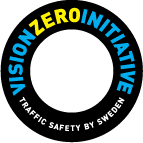What makes a country the greatest on earth? Probably it is
not one single thing but a package that contains an amalgamation of
things. One of the things that would
weigh in heavily for me would be a government’s respect for its citizens and
wanting to do right by them.
 |
| Zwentendorf Nuclear Power Plant |
A couple of stories caught my eye and made me want to delve
deeper into them. One takes place in Austria.
In 1960 the Austrian government started a nuclear energy
program and the parliament unanimously order its first power plant to be built
outside of Vienna, it was called the Zwentendorf Nuclear Power plant.
The plant was to open in 1978 but two years before the
opening date the government embarked upon a plan to educate their citizens
about the safety of nuclear power.
This act as a separate issue should be applauded; a
government concerned about their citizens enough to inform them. Really?
But there was a turn of events and what started out as being
a program to educated the citizenry turned into large demonstrations. The
concerns were many but high on the list were:
- The hazards to human health through the release of radioactivity.
- A number of unresolved technical problems with the reactor.
- The unsettled and unresolved problems of nuclear waste management and disposal.
- The connections between the so-called peaceful nuclear energy and the military nuclear industry.
- Inadequate emergency planning, the necessity for and the impossibility of evacuating several cities in case of a nuclear catastrophe.
During this process to educate, a public discussion began
which lead to a campaign against the power plant, which led to large
demonstrations against the Zwentendorf Nuclear Power Plant.
And lo and behold on December 15, 1978 the Austrian
Parliament voted in favor of a ban on using nuclear fission for their country’s
energy supply.
Today the Zwentendorf Power Plant, which never was opened as a
nuclear power facility, is being used as a training facility for persons
working in other nuclear power facilities and as a unique backdrop in many film and
television productions.
You can read the story of Zwentendorf here. http://www.nuclear-power-plant.net/index.php?lang=en
Another story comes from the country of Sweden, which has
adopted a Vision Zero program. Simply stated, the government says: “No loss of
life is acceptable”. And they have begun a program to reduce highway deaths to
ZERO.
They acknowledge that mobility is crucial for all parts of
society. But they also acknowledge that mistakes have been made and humans were
not made to travel at high speeds on the roadway.
The program appears to be working and traffic related death
rates are falling despite increasing traffic. They have not yet achieved their
goal of “zero” but they continue to work toward that goal
When you read something like this, how can you not think,
‘greatest country’:
This Vision Zero is the Swedish approach to road safety
thinking. It can be summarised in one sentence: No loss of life is acceptable.
The Vision Zero approach has proven highly successful. It is based on the
simple fact that we are human and make mistakes. The road system needs to keep
us moving. But it must also be designed to protect us at every turn.
More information on Vision Zero can be found here: http://www.economist.com/blogs/economist-explains/2014/02/economist-explains-16
Two relatively small countries show that they can make bold
decisions when it comes to the safety of their citizens. In my book that puts
them on the “greatest countries” list.
I wonder when my own country will realize that our increase in gun deaths is unacceptable and decide to take action to do something about it.
Maybe even going to far as to say, “No loss of life is acceptable”.
Wow, now that
would be great in my book.



